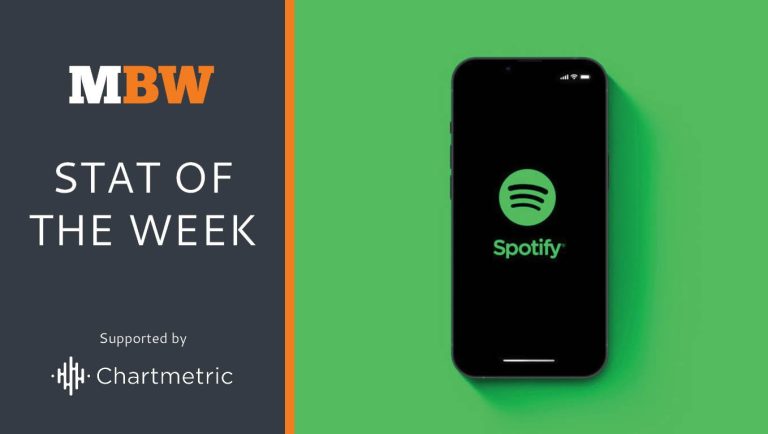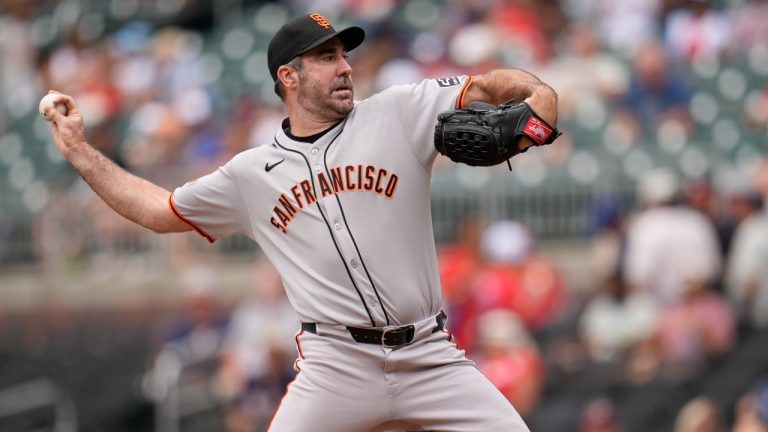What’s happened?
After more than a year of meeting with industry stakeholders, the UK government has unveiled a new “label-led” initiative to improve pay for legacy artists, songwriters and session musicians.
The core of this new plan is a set of principles unveiled on Tuesday (July 22) by UK recording industry trade group BPI, with backing from the Association of Independent Music (AIM).
The UK divisions of the three majors – Universal Music Group UK, Sony Music Entertainment UK and Warner Music UK – have “committed to implementing the principles and will be communicating their own individual company programs to benefit the legacy artists, songwriters and musicians they work with,” BPI said in a statement.
The trade group also “recommends” the principles to its 500+ independent label members.
Groups representing creators say that while the plan doesn’t address many of their key concerns – such as inequality in royalty payments – it’s a step in the right direction.
Here’s a breakdown of what this will mean for music creators in the UK:
Legacy artists: Unrecouped advances forgiven, new contracts made easier
The BPI’s principles recommend that labels “disregard” unrecouped advances to artists whose contracts were signed before 2000 and who haven’t received any additional advances since then, and pay royalties to those artists at their contractual rate.
They also recommend that labels either roll forward the cutoff date for this policy or initiate support programs for legacy artists that boost consumption of their music on streaming platforms, for instance through marketing campaigns and digitization of deep catalog tracks.
In essence, this would mean that legacy artists who have still not seen their advance paid off after 25 years would start to earn royalties (in the case of the roll-forward plan) or would get help from labels to boost their music in the streaming ecosystem.
Given that contracts signed prior to 2000 typically didn’t foresee streaming royalties, another significant aspect here is renegotiation of these older contracts. While the BPI’s principles stop short of mandating contract renegotiations, they “recommend” that labels “respond meaningfully” to renegotiation queries within 60 days, and advise legacy artists on how to go about a renegotiation.
Universal Music Group announced in March 2022 that it would be disregarding unrecouped balances for heritage artists.
Warner Music Group confirmed in February that same year that it would be introducing a “legacy unrecouped advances program”.
Sony Music Group announced in June 2021 that it was disregarding unrecouped balances for thousands of heritage artists and songwriters globally who had signed to the company in previous decades. The program was expanded in May 2022.
Songwriters: A per-diem for attending songwriting sessions and camps
In what’s claimed to be the first such policy in the world, songwriters will be paid a per-diem by labels for attending songwriting sessions and camps.
According to the Ivors Academy, the UK divisions of the recording majors have agreed to pay songwriters GBP £75 (USD $101) per day to cover expenses from attending these writing sessions. This per-diem will be a straight payment to songwriters, and won’t be recoupable from future royalties.
The BPI doesn’t specify this rate in its principles, but recommends that all UK labels “ensure emerging songwriters are not out of pocket when invited by a label to attend a songwriter session or camp” either through a per-diem, reimbursement of expenses, or “other forms of financial support.”
The Ivors Academy said in a statement: “Until now, songwriters have often been expected to work for free during sessions, with no guarantee of future income unless a track is commercially released and generates streaming royalties.
“Many invest significant time and personal expense in the hope of a return that may never materialize. This practice… places an unfair burden on creators and presents major barriers to entry, particularly for those from lower-income backgrounds.”
Session musicians: A 15%-40% pay hike
Under a new agreement between BPI and the Musicians’ Union, session musicians will see a pay hike of 40% for pop music and 15% for classical, and the BPI says labels should pay session musicians who perform on recordings “at least” the minimum rates set by that agreement.
According to BBC News, this means pop musicians will see their standard fees rise to £182 ($246) per session, from £130 previously, while a classical violinist will now get £106.90 ($145) per session, up from £92.96 before.
What are music business trade groups saying?
Not surprisingly, BPI and AIM are touting their roles in making these improvements to creator pay a reality.
“After five years of detailed scrutiny and analysis, we are pleased to put in place these creator remuneration principles for UK labels in response to specific concerns identified in the UK’s streaming debate,” BPI Chief Strategy Officer Sophie Jones said in a statement.
“Many more artists are succeeding in the era of streaming than ever before – and we are confident that these targeted measures will lead to positive and sustainable outcomes and support for legacy artists, songwriters and session musicians, and ensure that our members’ significant ongoing investment into the development of British talent and the growth of our world leading UK music industry will be to the benefit of all.”
“Many more artists are succeeding in the era of streaming than ever before – and we are confident that these targeted measures will lead to positive and sustainable outcomes and support for legacy artists, songwriters and session musicians…”
Sophie Jones, BPI
According to Gee Davy, Chief Executive of AIM, the UK’s independent music businesses have long advocated for better outcomes for creators”.
But cautioned: “Best practice needs to reflect the diversity of business models across the independent sector. A uniform solution won’t be suitable for all.
“AIM encourages mutually respectful dialogue between labels and creators to ensure the best outcomes. AIM recommits to continuing to regularly engaging with other industry bodies to promote fair and sustainable practices that reflect today’s music economy.”
However, some of the groups representing artists and songwriters took a more cautious approach, and highlighted that many of the issues with creator pay that they’ve been highlighting haven’t been addressed with these principles.
“Our copyright law is currently failing to empower and protect the UK’s human creators because of the inequitable policies of major rightsholders.”
Council of Music Makers
“Much more still needs to be done,” said the Council of Music Makers, speaking on behalf of the Ivors Academy, the Featured Artists Coalition, the Musicians’ Union, the Music Producers Guild and the Music Managers Forum.
“In 2021 Parliament’s Culture, Media & Sport Select Committee raised several fundamental issues regarding the streaming business model, calling for ‘a complete reset.’ These issues remain largely unresolved, as major labels say they will not address systemic inequities in the way streaming works voluntarily.
“This means our copyright law is currently failing to empower and protect the UK’s human creators because of the inequitable policies of major rightsholders.”
The Musicians’ Union said it remains “disappointed that the labels have not addressed the key issues with music streaming economics.”
Musicians’ Union General Secretary Naomi Pohl said: “We are grateful to [Creative Industries, Arts and Tourism] Minister Chris Bryant for the pressure he has put on record labels, and the majors in particular, to improve terms for artists on older contracts.
“While an uplift on minimum session rates was achieved by the MU in negotiation with the BPI last year, this doesn’t address a lack of royalties for session musicians and we also want to see modern royalty rates for all signed artists. The fundamental problems with music streaming economics remain.”
A bumpy road
For the UK government – both under the current Labour Party leadership and the previous Conservative Party leadership – the new principles come after years of debate over artist remuneration in the streaming age.
That debate was kick-started in 2021 when a parliamentary committee called for a “complete reset” on how music streamers pay out royalties. Among the committee’s recommendations was a plan for “equitable remuneration” that would have seen 50% of recorded music streaming royalties paid directly to performers.
No doubt sensing opposition to the idea from the recorded music industry, the government of then-Prime Minister Boris Johnson ended up taking no action on the proposal.
“Best practice needs to reflect the diversity of business models across the independent sector. A uniform solution won’t be suitable for all.”
Gee Davy, AIM
In 2024, the same parliamentary committee recommended a policy that would rebalance royalty payouts between recorded music rights and publishing rights to give publishing rights holders, including songwriters, a larger share of the pie. So far, the Labour government hasn’t taken action on the policy.
At times, the government has also found itself having to balance not only the interests of artists and the music industry but also the interests of music versus other industries.
Earlier this year, as part of its efforts to boost the AI industry in the UK, Prime Minister Sir Keir Starmer’s government took on board a recommendation that would have allowed AI developers to use copyrighted content to train their AI unless a copyright owner “opted out” of its use.
After getting pushback from artists and music industry executives, the UK government pulled back on that proposal this past spring. The whole situation highlighted the difficulties facing governments as they try to adapt cultural and economic policy in a time of rapid technological change.
What’s next?
The UK government and the various stakeholders involved, including BPI, AIM and creators’ groups, say they plan to monitor the impact of the changes and assess them in a year’s time.
In the meantime, the issue of streaming remuneration will continue to be an area of focus for both the government and creators. The government is planning a meeting this September with BPI, AIM, the Musicians’ Union and other groups to look at further steps that can be taken to address concerns over streaming pay.
Some of these creators’ groups aren’t waiting for that meeting to take action.
In a statement on Tuesday, the Musicians’ Union said it would shortly launch a petition calling for copyright law reforms “in order to address issues around streaming and AI,” which the union hopes will make its way into next year’s planned AI Bill.
Among the things the MU is seeking is a minimum digital royalty to apply to all signed artists; a “rights reversion” policy so that artists and songwriters can take back their rights after a set period of time (similar to the “termination rights” that exist in the US); streaming royalties for session musicians; and a right to contract adjustment.
In light of all these contentious issues, it’s clear that the debate over copyright law reform and royalty payments is far from over.

Reservoir (Nasdaq: RSVR) is a publicly traded, global independent music company with operations across music publishing, recorded music, and artist management. Music Business Worldwide








